
Enchanting Wonders of Ngu Hanh Son District
Nestled on the picturesque coastline of Da Nang, Ngu Hanh Son District is a captivating blend of natural beauty, cultural significance, and spiritual tranquility. This district, also known as the Marble Mountains, is renowned for its stunning limestone formations, each named after one of the five elements: metal, wood, water, fire, and earth. These mountains are dotted with ancient pagodas, intricate caves, and breathtaking viewpoints that offer panoramic vistas of the surrounding landscape. Visitors can explore the rich history and spiritual heritage of Ngu Hanh Son through its numerous temples and shrines that date back centuries. The Linh Ung Pagoda, with its towering statue of the Goddess of Mercy, stands as a beacon of peace and spirituality. For those seeking adventure, the area offers several hiking trails that lead to hidden caves adorned with religious carvings and statues, providing a sense of discovery and wonder. Beyond its natural and cultural attractions, Ngu Hanh Son District also boasts a vibrant local culture. The nearby Non Nuoc Stone Carving Village is a must-visit for those interested in traditional Vietnamese craftsmanship. Here, artisans skillfully transform marble into exquisite sculptures and souvenirs, showcasing the local talent and creativity. The district's proximity to the beach ensures that visitors can also indulge in some relaxation and water activities, making it a well-rounded destination for all types of travelers.
Local tips in Ngu Hanh Son District
- Visit early in the morning or late afternoon to avoid the midday heat and enjoy a more pleasant experience.
- Wear comfortable shoes as the terrain can be uneven and requires a fair bit of walking and climbing.
- Don't miss the Non Nuoc Stone Carving Village for unique souvenirs and a glimpse into local craftsmanship.
- Bring water and snacks, as there are limited refreshment options available within the mountainous area.
- Hire a local guide for a more informative and enriching experience, especially to learn about the history and significance of the sites.
Enchanting Wonders of Ngu Hanh Son District
Nestled on the picturesque coastline of Da Nang, Ngu Hanh Son District is a captivating blend of natural beauty, cultural significance, and spiritual tranquility. This district, also known as the Marble Mountains, is renowned for its stunning limestone formations, each named after one of the five elements: metal, wood, water, fire, and earth. These mountains are dotted with ancient pagodas, intricate caves, and breathtaking viewpoints that offer panoramic vistas of the surrounding landscape. Visitors can explore the rich history and spiritual heritage of Ngu Hanh Son through its numerous temples and shrines that date back centuries. The Linh Ung Pagoda, with its towering statue of the Goddess of Mercy, stands as a beacon of peace and spirituality. For those seeking adventure, the area offers several hiking trails that lead to hidden caves adorned with religious carvings and statues, providing a sense of discovery and wonder. Beyond its natural and cultural attractions, Ngu Hanh Son District also boasts a vibrant local culture. The nearby Non Nuoc Stone Carving Village is a must-visit for those interested in traditional Vietnamese craftsmanship. Here, artisans skillfully transform marble into exquisite sculptures and souvenirs, showcasing the local talent and creativity. The district's proximity to the beach ensures that visitors can also indulge in some relaxation and water activities, making it a well-rounded destination for all types of travelers.
Iconic landmarks you can’t miss
The Marble Mountains
Discover the breathtaking beauty and cultural heritage of the Marble Mountains in Da Nang, Vietnam, a must-visit for every traveler.
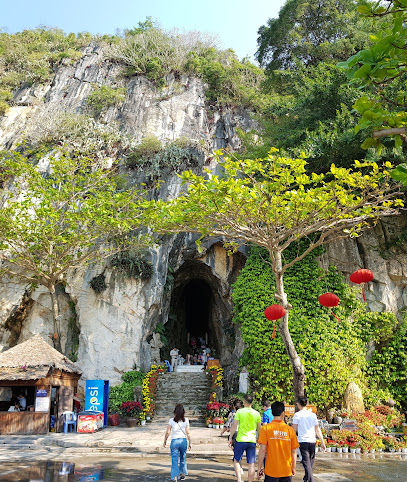
Huyen Khong Cave
Explore the enchanting Huyen Khong Cave in Da Nang, Vietnam, where stunning natural beauty meets rich cultural history in a breathtaking setting.
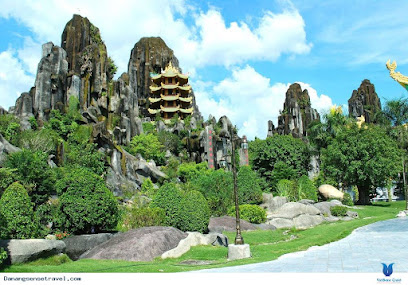
Non Nuoc stone carving
Discover the exquisite artistry of Non Nuoc Stone Carving in Da Nang, Vietnam - a cultural gem showcasing handcrafted marble sculptures and rich heritage.
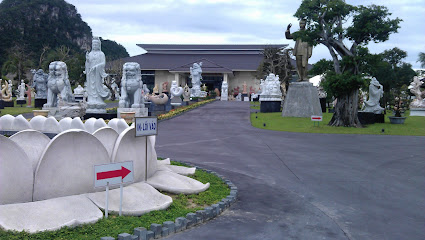
Hòn Thủy Sơn
Experience the breathtaking landscapes and rich cultural heritage of Hòn Thủy Sơn, a must-visit scenic spot in Da Nang, Vietnam.
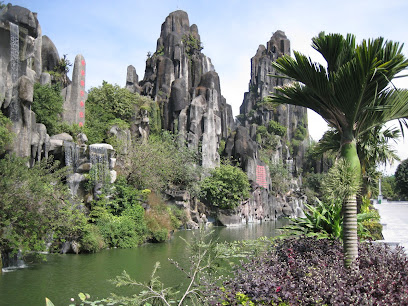
Động Âm Phủ
Experience the spiritual serenity of Động Âm Phủ, a hidden Buddhist temple in Da Nang offering breathtaking views and rich cultural history.
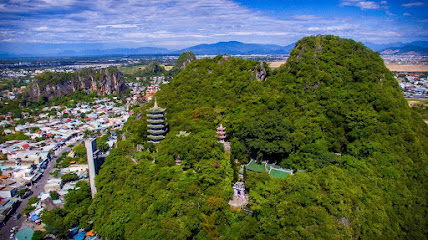
Đài Vọng Giang
Discover unparalleled panoramic views of Đà Nẵng at Đài Vọng Giang, a must-visit observation deck for tourists seeking unforgettable experiences.
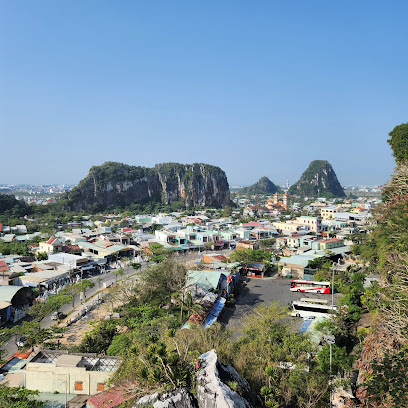
Marble Mountains Elevator
Discover the breathtaking beauty and rich history of the Marble Mountains in Da Nang, Vietnam, where nature meets spirituality and artistry.
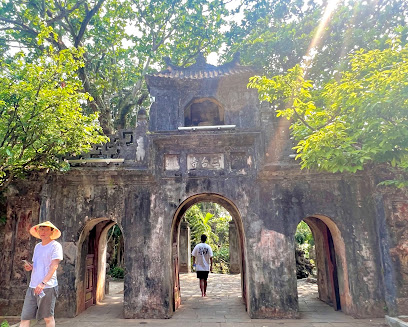
Vọng Hải Đài
Discover the breathtaking coastal beauty of Vòng Hải Đài, a must-visit tourist attraction in Da Nang, Vietnam, where serenity meets cultural richness.
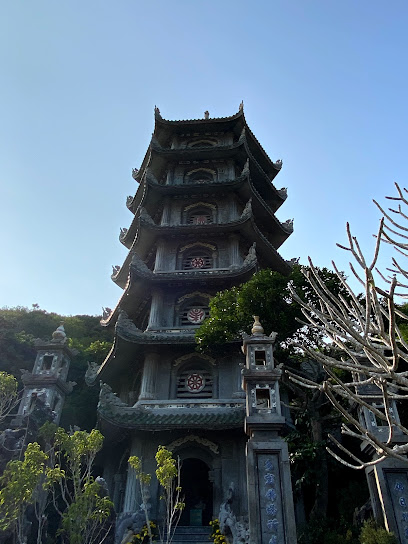
Llinh Nham Cave
Experience the serene beauty of Llinh Nham Cave, a hidden Buddhist temple in Da Nang, Vietnam, where nature meets spirituality in a tranquil setting.
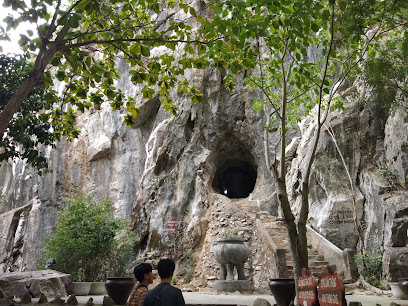
Yarra Building
Explore the Yarra Building in Da Nang, a stunning architectural wonder that offers a rich cultural experience and a glimpse into Vietnamese heritage.
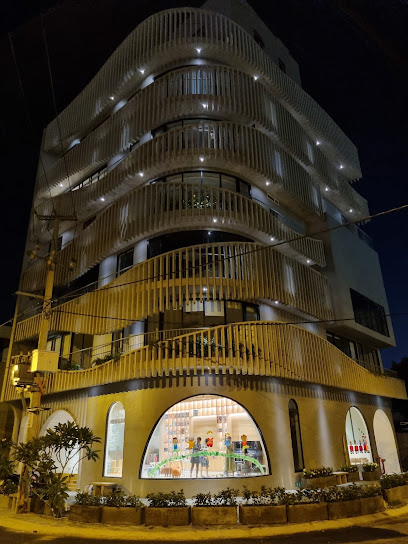
Unmissable attractions to see
Sun Wheel
Discover breathtaking views and cultural delights at Da Nang's iconic Sun Wheel, a thrilling Ferris wheel experience in Asia Park.
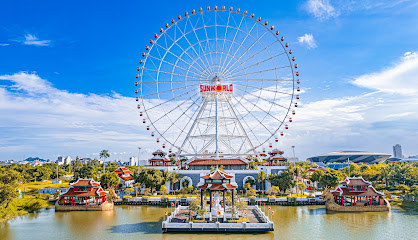
Huyen Khong Cave
Explore the stunning Huyen Khong Cave in Ngũ Hành Sơn, a mystical site blending natural beauty and rich cultural history.
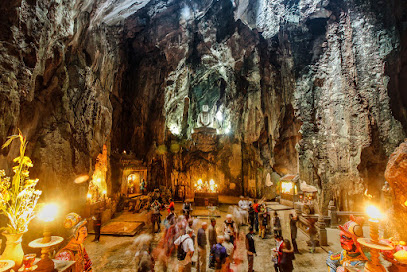
Non Nuoc stone carving
Explore the captivating world of marble artistry at Non Nuoc Stone Carving, a must-visit cultural gem in Da Nang, Vietnam.
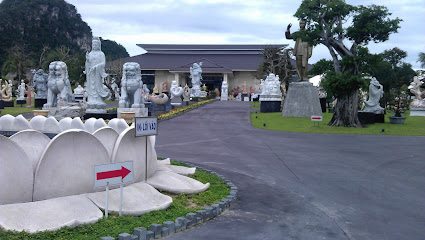
Bãi Tắm Non Nước
Explore the pristine sands and crystal-clear waters of Bãi Tắm Non Nước, a must-visit beach in Da Nang, Vietnam, perfect for relaxation and adventure.
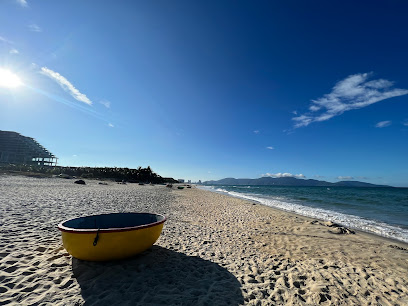
Vọng Hải Đài
Explore Vòng Hải Đài in Da Nang for breathtaking coastal views, rich history, and a tranquil escape into Vietnam's natural beauty.
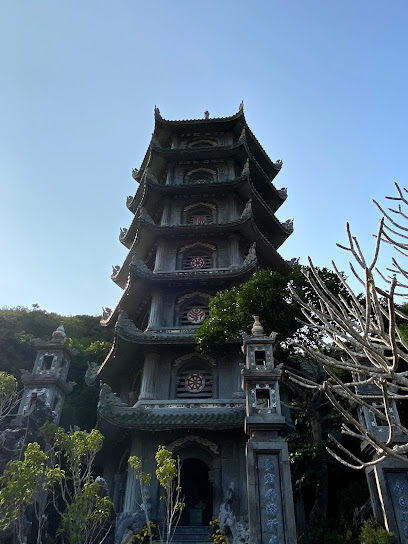
Yarra Building
Discover the architectural beauty of Yarra Building in Da Nang, a modern attraction blending contemporary design with local culture.
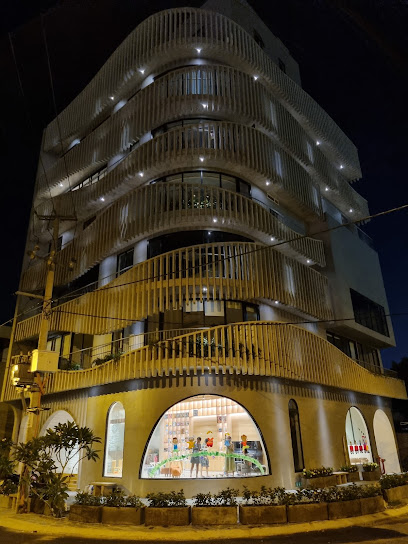
Essential places to dine
Miss NHI
Savor authentic Vietnamese cuisine at Miss NHI in Da Nang—where every dish tells a story.
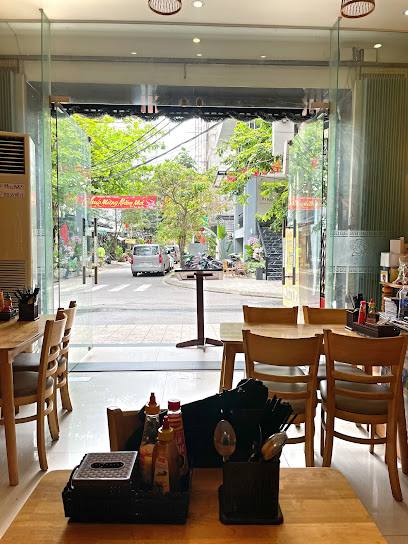
Ngon Thi Hoa Restaurant
Experience authentic Vietnamese flavors at Ngon Thi Hoa Restaurant in Da Nang – where every dish tells a story.
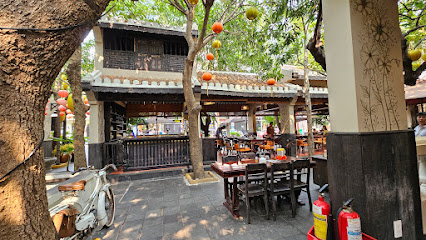
Laluna Bar & Restaurant
Experience authentic Vietnamese breakfast delights at Laluna Bar & Restaurant in Da Nang's scenic Hoà Hải district.
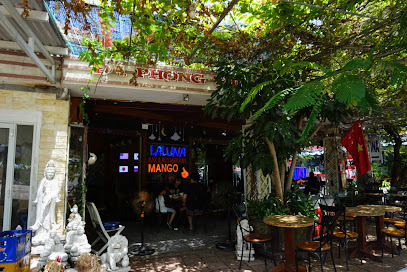
Rainbowl Poke
Experience the vibrant flavors of Hawaii at Rainbowl Poke in Da Nang - where healthy meets delicious in every bowl.
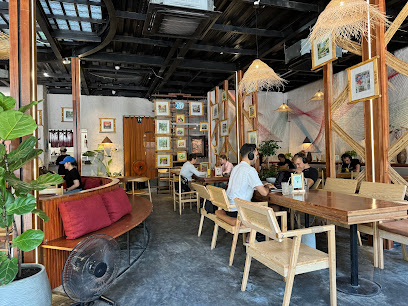
Mumtaz Indian Aroma Restaurant(former Mumtaz Indian)
Experience authentic Indian cuisine at Mumtaz Indian Aroma Restaurant in Da Nang – a culinary gem filled with rich flavors and warm hospitality.
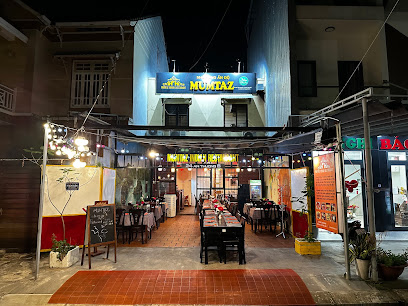
Hang's Kitchen Restaurant
Experience a delightful fusion of Tex-Mex flavors at Hang's Kitchen Restaurant in Da Nang – perfect for food enthusiasts seeking unique culinary adventures.
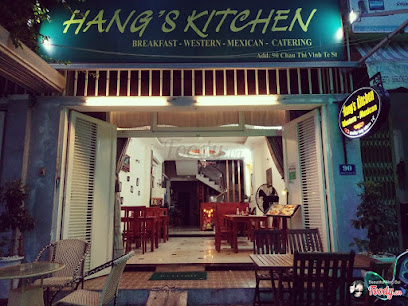
Nhà Hàng Si Dining
Experience exquisite Italian cuisine at Nhà Hàng Si Dining in Da Nang – where every dish tells a story of flavor and tradition.
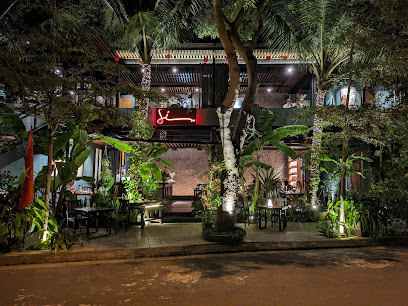
HANNAH Pub & Restaurant
Discover HANNAH Pub & Restaurant in Da Nang - where local flavors meet international cuisine in a warm and inviting atmosphere.
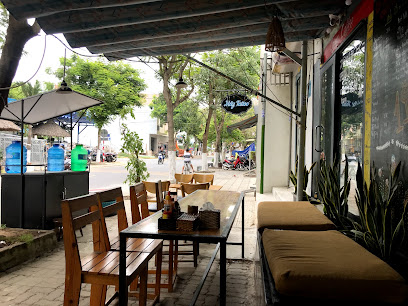
Thuy Hang Restaurant
Discover authentic Vietnamese street food at Thuy Hang Restaurant in Da Nang – where every dish tells a story.

Đà nẵng
Experience Đà Nẵng's vibrant culinary scene with fresh seafood, traditional Vietnamese dishes, and breathtaking coastal views.
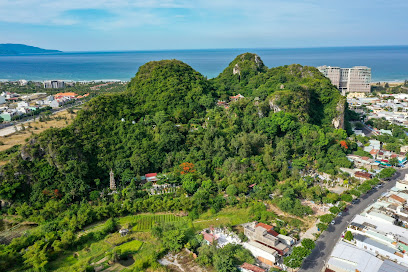
Markets, malls and hidden boutiques
Outstanda Handcraft - Local Handmade Gift Shop
Explore the charm of Outstanda Handcraft, a local gift shop in Da Nang offering handmade crafts and unique souvenirs to cherish your memories.
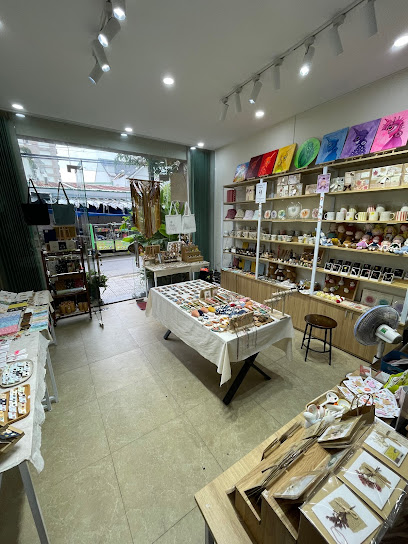
Quà Đà Nẵng
Discover the essence of Vietnam at Quà Đà Nẵng, your one-stop-shop for unique souvenirs and delightful local treats.
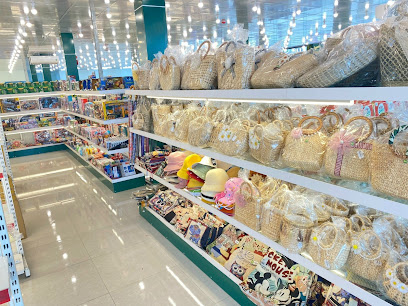
Hello Miss Đà Nẵng
Explore the vibrant clothing store, Hello Miss Đà Nẵng, where local fashion meets contemporary style in the heart of Vietnam's coastal city.

Siêu thị Mẹ và Bé À Ơ
Discover a family-friendly shopping paradise at Siêu thị Mẹ và Bé À Ơ in Da Nang, Vietnam, offering everything for mothers and their children.
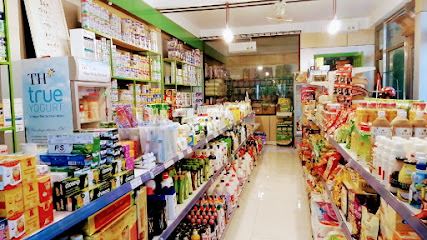
Na Na Boutique, 267Q+G9J, Hòa Quý, Nguc Hành Sơn, Đà Nẵng
Discover Na Na Boutique in Đà Nẵng for unique women's clothing that blends local styles with modern trends, perfect for every occasion.

BONNY Handmade Shop- Đà Nẵng
Explore BONNY Handmade Shop in Đà Nẵng for unique souvenirs and handcrafted treasures showcasing Vietnamese culture.
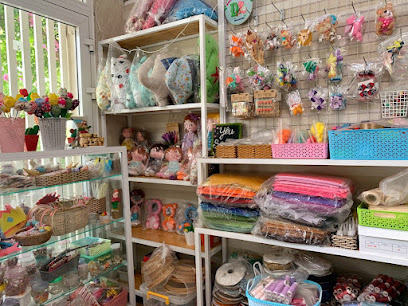
H&M
Discover contemporary fashion and unique gifts at H&M in Da Nang, where style meets sustainability for the modern traveler.
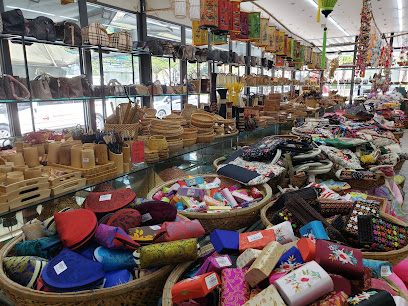
SUNNY BOUTIQUE- áo chống nắng nam nữ cao cấp
Explore SUNNY BOUTIQUE for stylish sun protection apparel, perfect for the fashion-forward traveler seeking to stay safe under the sun.
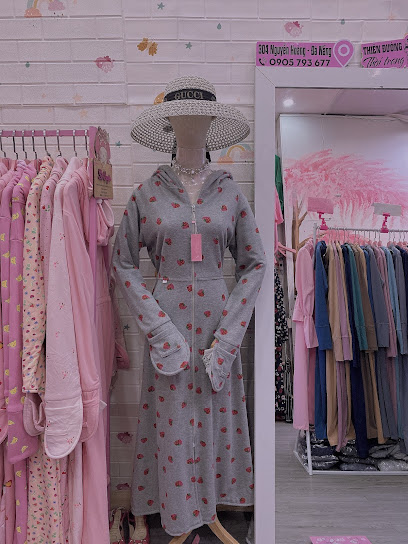
Souvenir shop
Explore a delightful souvenir shop in Ngũ Hành Sơn, Da Nang, offering unique gifts and a taste of local craftsmanship.
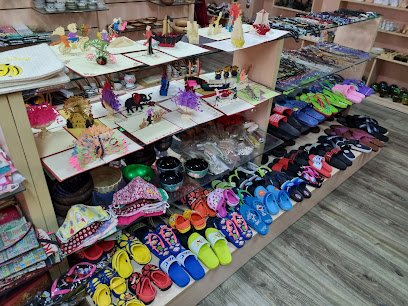
Nâu Store
Discover unique fashion accessories at Nâu Store in Da Nang, where local craftsmanship meets contemporary style for an unforgettable shopping experience.

Essential bars & hidden hideouts
Filling Station
Explore the vibrant nightlife of Da Nang at Filling Station, a lively bar known for its inviting atmosphere and diverse drink selection.
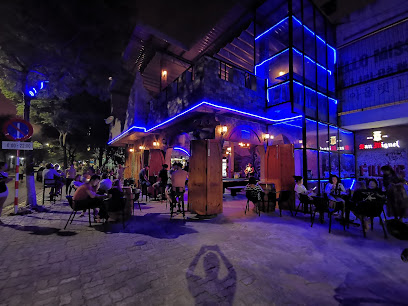
Shamrock Sports Bar
Shamrock Sports Bar in Da Nang: Where sports, darts, and great food come together in a vibrant Irish pub atmosphere.
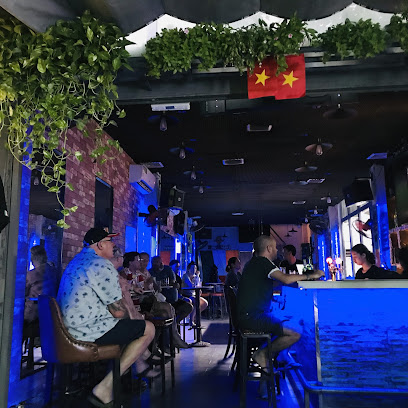
Emma's bar Da Nang
Discover the vibrant nightlife of Da Nang at Emma's Bar, your go-to spot for cocktails, live music, and unforgettable karaoke nights.
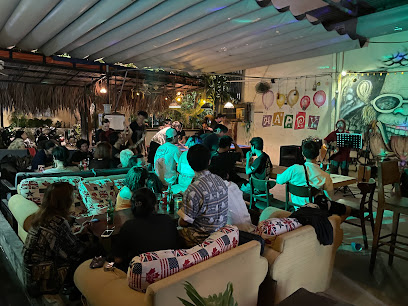
Le Funky Donkey - French Bar
Discover a vibrant French bar in Da Nang offering exquisite wines, delightful dishes, and a lively atmosphere for unforgettable evenings.
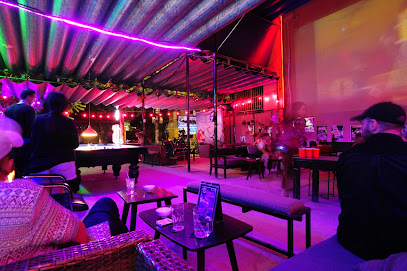
HeavenBar
Discover HeavenBar in Da Nang: A tropical oasis offering vibrant cocktails, live music, and unforgettable nightlife experiences in Vietnam.
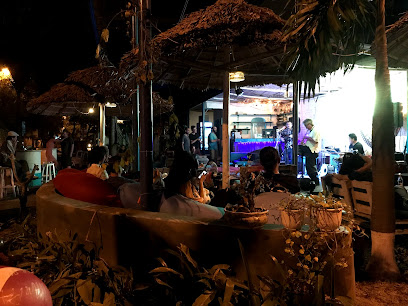
N Pub
Discover the vibrant nightlife at N Pub in Da Nang, where local brews meet a lively atmosphere for an unforgettable experience.
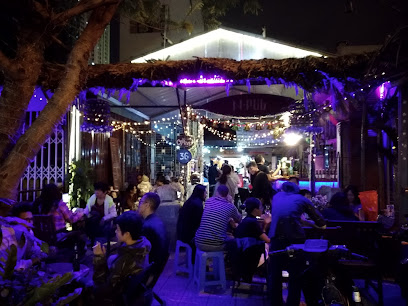
Ơi Bar
Experience the vibrant nightlife at Ơi Bar in Da Nang, a friendly spot offering great drinks and a lively atmosphere for all.
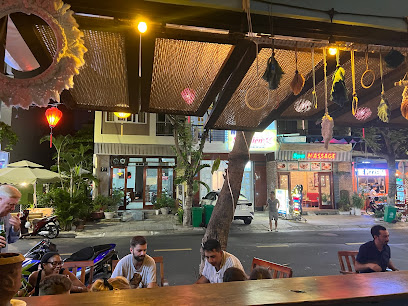
Bunker Da Nang
Discover the vibrant nightlife at Bunker Da Nang, a cocktail bar offering innovative drinks and a lively atmosphere in Vietnam's coastal city.
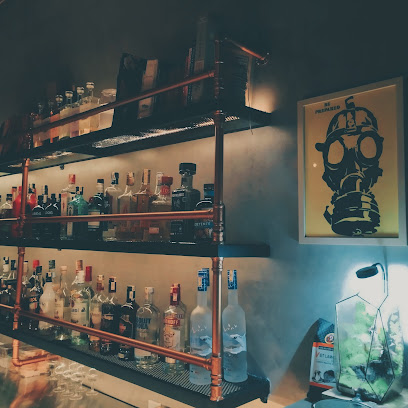
Sleepy Dog Pub
Experience the vibrant nightlife at Sleepy Dog Pub in Da Nang, where great drinks and friendly atmosphere create unforgettable memories.
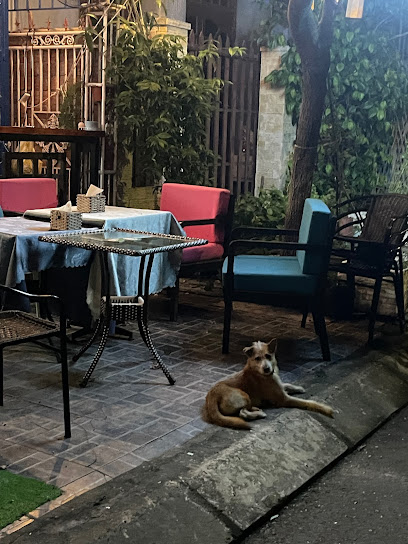
Bluesky bar
Discover the lively nightlife of Da Nang at Bluesky Bar, where refreshing drinks and breathtaking views create an unforgettable experience.
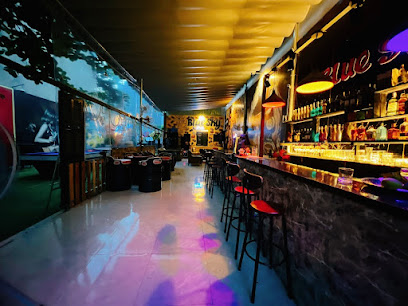
Local Phrases
-
- HelloXin chào
[sin chow] - GoodbyeTạm biệt
[tahm byet] - YesCó
[koh] - NoKhông
[kohng] - Please/You're welcomeXin vui lòng
[sin vwee long] - Thank youCảm ơn
[kahm uhn] - Excuse me/SorryXin lỗi
[sin loy] - How are you?Bạn khỏe không?
[buhn kweh kohng] - Fine. And you?Khỏe, còn bạn?
[kweh, kohn buhn] - Do you speak English?Bạn có nói tiếng Anh không?
[buhn koh noy tyeng ahn kohng] - I don't understandTôi không hiểu
[toy kohng hyuh]
- HelloXin chào
-
- I'd like to see the menu, pleaseTôi muốn xem thực đơn, vui lòng
[toy mwohn sehm took duhn, vwee long] - I don't eat meatTôi không ăn thịt
[toy kohng an tit] - Cheers!Chúc sức khỏe!
[chuhk sook kweh] - I would like to pay, pleaseTôi muốn thanh toán, vui lòng
[toy mwohn thanh toh ahn, vwee long]
- I'd like to see the menu, pleaseTôi muốn xem thực đơn, vui lòng
-
- Help!Cứu!
[kyoo] - Go away!Đi chỗ khác!
[dee chuh khahk] - Call the Police!Gọi cảnh sát!
[goy kahng saht] - Call a doctor!Gọi bác sĩ!
[goy bahk see] - I'm lostTôi lạc đường
[toy lahk doong] - I'm illTôi ốm
[toy ohm]
- Help!Cứu!
-
- I'd like to buy...Tôi muốn mua...
[toy mwohn mooah] - I'm just lookingTôi chỉ xem thôi
[toy chee sehm toy] - How much is it?Nó giá bao nhiêu?
[noh zah bao nyew] - That's too expensiveĐắt quá
[daht kwah] - Can you lower the price?Bạn có thể giảm giá không?
[buhn koh tez yuhm zah kohng]
- I'd like to buy...Tôi muốn mua...
-
- What time is it?Bây giờ là mấy giờ?
[by goh lah mye goh] - It's one o'clockBây giờ là một giờ
[by goh lah moot goh] - Half past (10)Mười giờ rưỡi
[moo-ee goh ruh-ee] - MorningBuổi sáng
[bu-oy sahng] - AfternoonBuổi chiều
[bu-oy chee-ew] - EveningBuổi tối
[bu-oy toy] - YesterdayHôm qua
[hohm kwah] - TodayHôm nay
[hohm nigh] - TomorrowNgày mai
[ny-ay mahy] - 1Một
[moot] - 2Hai
[high] - 3Ba
[bah] - 4Bốn
[bohn] - 5Năm
[nahm] - 6Sáu
[sow] - 7Bảy
[bahy] - 8Tám
[tahm] - 9Chín
[cheen] - 10Mười
[moo-ee]
- What time is it?Bây giờ là mấy giờ?
-
- Where's a/the...?Có...ở đâu?
[koh uh zow] - What's the address?Địa chỉ là gì?
[dee-ah chee lah zee] - Can you show me (on the map)?Bạn có thể chỉ cho tôi (trên bản đồ) không?
[buhn koh tez chee choh toy (trehn baan doh) kohng] - When's the next (bus)?Khi nào xe buýt kế tiếp?
[khee now se beh-oot ke te-ep] - A ticket (to ....)Một vé (đến....)
[moot veh (den)]
- Where's a/the...?Có...ở đâu?
History of Ngu Hanh Son District
-
Ngu Hanh Son District, also known as the Marble Mountains, has been a site of historical and cultural significance since ancient times. The mountains are named after the five elements: metal, wood, water, fire, and earth. The area was not only a place of worship for the indigenous Cham civilization, who built temples and shrines to honor their deities, but it also served as a retreat for Buddhist monks seeking solitude.
-
During the height of the Champa Kingdom from the 4th to the 15th centuries, Ngu Hanh Son was home to numerous temples and sanctuaries, many of which have been preserved. The Linh Ung Pagoda, situated on the mountains, is a testament to the rich spiritual heritage of the area. The Cham architecture, characterized by intricate stone carvings and sculptures, remains a focal point for visitors and historians alike.
-
In the late 19th and early 20th centuries, during French colonial rule, the Ngu Hanh Son District became known for its marble quarries. The high-quality marble from the area was exported and used in various architectural projects, both locally and internationally. This extraction significantly influenced the local economy and introduced European architectural styles to Da Nang.
-
During the Vietnam War, the Ngu Hanh Son area was affected by military activities, with its caves and tunnels being utilized as hiding places and strategic locations. The district witnessed significant conflict, and many of its cultural sites were damaged. Post-war restoration efforts have sought to recover and preserve the area's historical and cultural landmarks.
-
In recent years, Ngu Hanh Son has transformed into a popular tourist destination, balancing modern development with cultural preservation. Efforts have been made to maintain the historical sites while accommodating the influx of visitors. Festivals celebrating local traditions, along with the promotion of handicrafts such as stone carving, have revitalized the community and showcased its rich heritage.
Ngu Hanh Son District Essentials
-
Ngu Hanh Son District is easily accessible from other neighbourhoods in Da Nang. The most convenient way to reach the district is by taxi or ride-hailing services like Grab, which are widely used in the city. If you're coming from the city center, it typically takes about 20 minutes by car. For those using public transport, local buses operate routes to Ngu Hanh Son, with Bus 1 and Bus 3 being the most common. Additionally, if you’re arriving from the Da Nang International Airport, taxis are available and can take you directly to your destination in approximately 30 minutes.
-
Ngu Hanh Son District is relatively compact and can be explored by bicycle or on foot, especially around popular attractions such as the Marble Mountains. Local buses are available, but rental scooters or bicycles can offer more flexibility for exploring the area at your own pace. Taxis and ride-hailing apps like Grab are also convenient options for longer distances. Be cautious when riding a bicycle on busy roads, as traffic can be unpredictable.
-
Ngu Hanh Son District is generally safe for tourists, but standard precautions should be taken. Avoid isolated areas, especially at night, and be mindful of your belongings in crowded places. The areas around major tourist attractions are typically well-patrolled, but petty crimes like pickpocketing can occur, particularly in busy markets. Always stay alert and keep your valuables secured.
-
In case of an emergency, dial 113 for police assistance, 114 for fire services, and 115 for medical emergencies. The local hospitals in Da Nang provide good medical care, and it is advisable to have travel insurance that covers any medical issues. For minor health concerns, there are pharmacies throughout Ngu Hanh Son District where you can purchase over-the-counter medications.
-
Fashion: Do dress modestly, especially when visiting temples and pagodas. Avoid shorts and sleeveless tops in these sacred spaces. Religion: Do show respect by removing your shoes when entering temples. Don’t take photos in restricted areas. Public Transport: Do give up your seat to the elderly and pregnant women. Don’t engage in loud conversations. Greetings: Do greet locals with a smile and a polite 'Xin chào'. Don’t engage in overly casual or disrespectful behavior. Eating & Drinking: Do try the local cuisine and be open to food offerings. Don’t waste food or refuse a meal, as it can be seen as insulting.
-
To experience Ngu Hanh Son District like a local, visit the bustling markets such as the Non Nuoc Stone Village, where you can find unique stone carvings and souvenirs. Try local dishes at street food stalls, especially the banh trang cuon thit heo (rice paper rolls with pork). Engage with the local artisans; many are eager to share their craft and stories. Early mornings are a great time to visit the Marble Mountains to avoid crowds and enjoy a serene atmosphere.
Nearby Cities to Ngu Hanh Son District
-
Things To Do in Hoi An
-
Things To Do in Tam Ky
-
Things To Do in Hue
-
Things To Do in Quy Nhon
-
Things To Do in Pakse
-
Things To Do in Champasak
-
Things To Do in Buon Ma Thuot
-
Things To Do in Ubon Ratchathani
-
Things To Do in Savannakhet
-
Things To Do in Thakhek
-
Things To Do in Nha Trang
-
Things To Do in Dalat
-
Things To Do in Kratie
-
Things To Do in Siem Reap
-
Things To Do in Mui Ne









